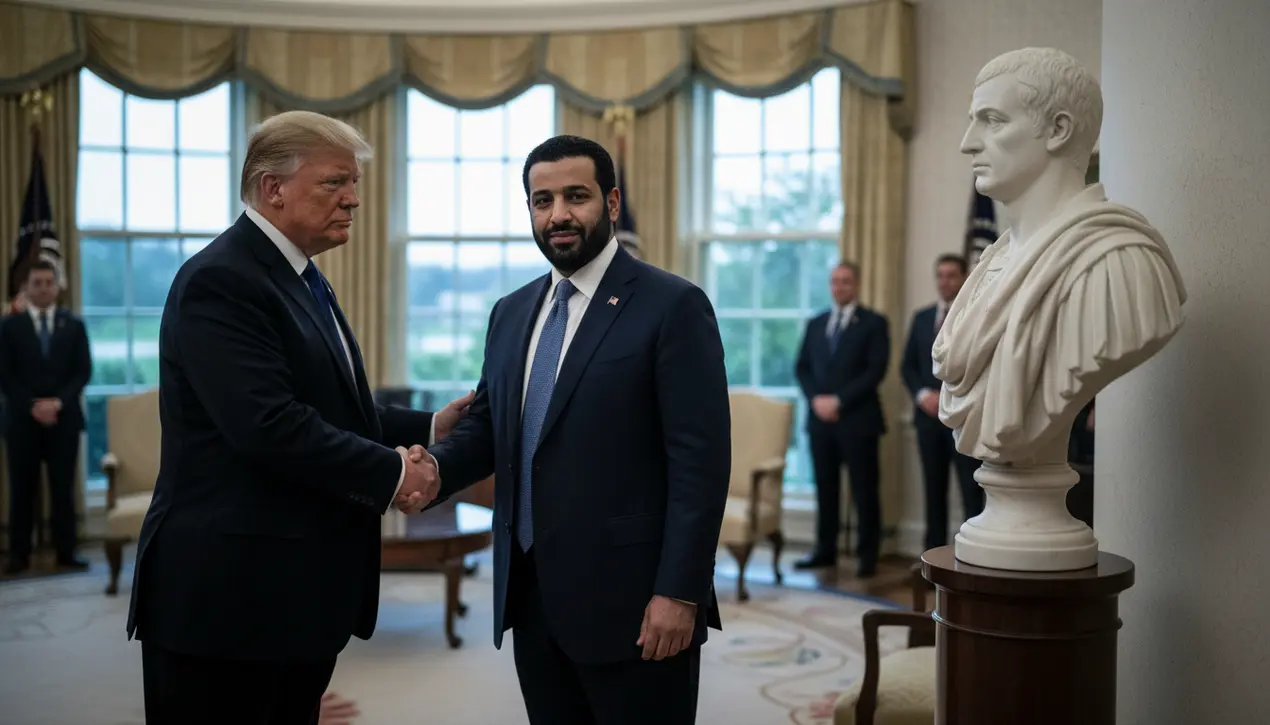
PoliticsdiplomacyDiplomatic Visits
Trump Hosts Saudi Crown Prince at the White House.
RO
Robert Hayes
2 hours ago7 min read
In a move laden with the heavy symbolism of realpolitik, President Donald Trump officially hosted Saudi Crown Prince Mohammed bin Salman at the White House, a carefully choreographed encounter that marks the royal's first visit to the seat of American power since the brutal 2018 killing of Washington Post journalist Jamal Khashoggi. This was not merely a diplomatic nicety; it was a stark reaffirmation of a foundational, if often uncomfortable, alliance, a calculated embrace that prioritized strategic imperatives over moral outcry.The ghost of Khashoggi, a US-based columnist dismembered by a Saudi hit squad in the kingdom's Istanbul consulate—an operation US intelligence concluded was likely approved by the Crown Prince himself—hung palpably over the proceedings, yet was conspicuously absent from the official agenda, a silence as deafening as any condemnation. For the Trump administration, the calculus was clear and unyielding: the strategic value of Riyadh as a counterweight to Iranian expansionism in the Middle East, a linchpin of global oil market stability, and a voracious purchaser of American arms systems, outweighed the demands for accountability and justice.This is a chapter straight from the annals of historical statecraft, reminiscent of the difficult alliances forged during the Cold War, where the US often backed authoritarian regimes in the name of containing a larger geopolitical threat, a parallel that would not have been lost on a student of history like Winston Churchill. The meeting signals to allies and adversaries alike that, for this White House, the preservation of a traditional power structure and the pursuit of immediate national interests, as defined by arms sales and energy security, will consistently trump the promotion of democratic values and human rights.The consequences are profound, potentially emboldening other authoritarian leaders who may now operate with a perceived sense of impunity, confident that their strategic utility provides a formidable shield. Furthermore, it deepens a schism with key segments of the US Congress and the wider Western liberal order, which view the Khashoggi affair as an unforgivable transgression that demands consequences, not normalization. The long-term implication is a potential erosion of America's moral authority on the global stage, a subtle but significant shift in the delicate balance between power and principle that has long defined, and often complicated, its role as a world leader.
#featured
#Donald Trump
#Mohammed bin Salman
#White House
#US-Saudi relations
#Jamal Khashoggi
Stay Informed. Act Smarter.
Get weekly highlights, major headlines, and expert insights — then put your knowledge to work in our live prediction markets.
Related News
Comments
Loading comments...
© 2025 Outpoll Service LTD. All rights reserved.